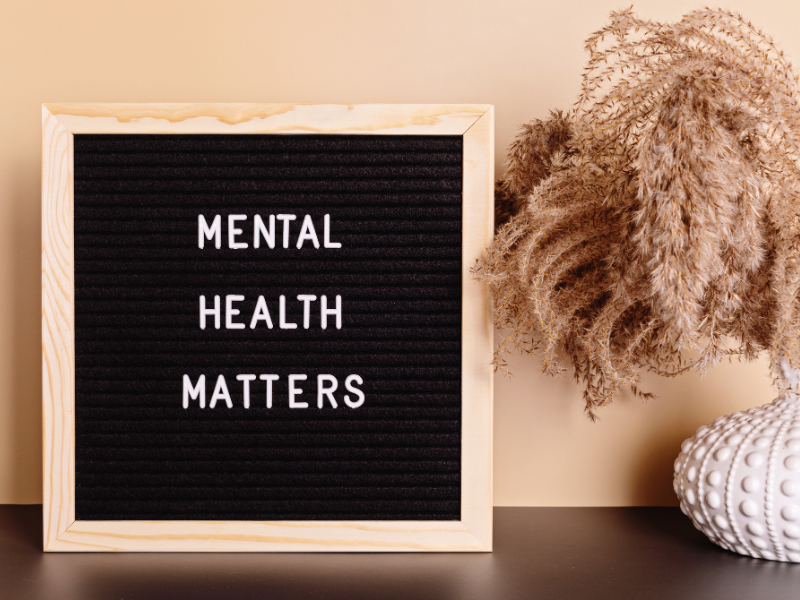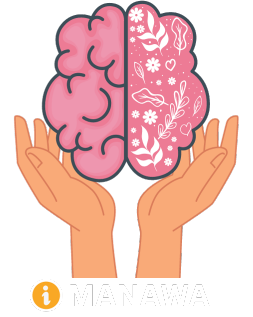
Introduction
In today’s fast-paced and demanding world, mental health has become an increasingly important aspect of overall well-being. More and more people are recognizing the significance of taking care of their mental health alongside their physical health. But why is mental health important, and what role does it play in our lives? This comprehensive article will delve into the topic of mental health, exploring its importance, factors that affect it, its impact on physical health, signs of poor mental health, and strategies for promoting and maintaining good mental health. Let us embark on this journey to discover the answers to these pressing questions.
The Importance of Mental Health

Mental health is crucial because it affects every aspect of our lives. It encompasses our emotional, psychological, and social well-being, and influences how we think, feel, and act. Just like physical health, mental health is essential for individuals to lead fulfilling and productive lives.
Understanding Mental Health

It is important to understand what mental health entails before exploring its significance further. Mental health refers to a person’s emotional and psychological well-being, and it impacts how an individual thinks, feels, and behaves. It affects our ability to cope with stress, maintain relationships, make decisions, and achieve our goals.
Factors Affecting Mental Health

Various factors contribute to the state of an individual’s mental health. These can include biological factors such as genetics and brain chemistry, life experiences, and family history of mental health problems. Additionally, environmental factors like trauma, abuse, and exposure to violence can also impact mental health.
Impact of Mental Health on Physical Health
The mind and body are interconnected, and mental health plays a vital role in maintaining physical well-being. Poor mental health can have detrimental effects on physical health, leading to increased risks of chronic conditions such as heart disease, obesity, and diabetes. Conversely, taking care of one’s mental health can contribute to better physical health outcomes.
Signs of Poor Mental Health
Identifying signs of poor mental health is crucial in seeking help and support. These signs can vary depending on the individual and the specific mental health condition they may be experiencing. Common indicators of poor mental health include persistent feelings of sadness, anxiousness, withdrawal from activities, changes in sleeping or eating patterns, difficulty concentrating, and substance abuse.
Mental Health and Productivity
Mental health has a significant impact on an individual’s productivity levels. When someone’s mental health is compromised, their ability to focus, make decisions, and fulfill responsibilities can be greatly affected. Prioritizing mental health can lead to improved productivity both in personal and professional aspects of life.
The Role of Self-Care in Mental Health
Self-care is an important aspect of maintaining good mental health. Engaging in self-care activities that promote relaxation, stress reduction, and emotional well-being can help individuals manage their mental health effectively. Activities such as exercise, meditation, spending time in nature, and practicing hobbies can contribute to overall mental well-being.
Addressing Stigma Surrounding Mental Health
Despite the progress made in recent years, there is still a significant stigma surrounding mental health. This stigma can prevent individuals from seeking help or openly discussing their mental health struggles. Addressing and reducing this stigma is crucial to ensure individuals feel comfortable seeking support and accessing necessary resources.
Promoting Mental Health in Schools
Schools play a vital role in promoting mental health among students. Implementing comprehensive mental health programs that educate students about the importance of mental well-being, provide support systems, and offer resources for seeking help can significantly impact students’ overall mental health and academic success.
The Connection Between Mental Health and Substance Abuse
Mental health issues and substance abuse often go hand in hand. Individuals struggling with poor mental health may turn to substances as a way to cope with their emotional pain or escape their problems temporarily. Addressing mental health concerns and providing appropriate support can help in breaking the cycle of substance abuse.
The Relationship Between Mental Health and Physical Exercise
Regular physical exercise not only provides numerous physical health benefits but also contributes to overall mental well-being. Exercise releases endorphins, known as “feel-good” chemicals, which can boost mood, reduce stress levels, and alleviate symptoms of depression and anxiety.
The Impact of Social Media on Mental Health
In the digital age, social media has become an integral part of many people’s lives. However, excessive use and dependence on social media can have negative effects on mental health. Comparison, cyberbullying, and constant connectivity can contribute to increased feelings of anxiety, depression, and decreased self-esteem. Establishing healthy boundaries and mindful social media usage can help protect mental well-being.
Mental Health and Work-Life Balance
Maintaining a healthy work-life balance is crucial for preserving mental health. Excessive work-related stress, long hours, and a lack of personal time can have adverse effects on mental well-being. Setting boundaries, practicing self-care, and finding a balance between work and personal life can help individuals maintain optimal mental health.
Mental Health in the Workplace
Workplace mental health is increasingly recognized as an important consideration for employers and employees alike. Creating a supportive work environment that prioritizes mental health and provides resources for stress management, conflict resolution, and employee well-being can lead to improved job satisfaction, productivity, and employee retention.
The Importance of Mental Health Support
Accessing mental health support and resources is crucial for individuals experiencing mental health challenges. Whether through therapy, helplines, support groups, or online resources, seeking support can assist individuals in understanding their emotions, coping with stress, and developing effective strategies for managing mental health.
The Role of Therapy in Mental Health
Therapy is an invaluable tool for improving mental health and well-being. It provides individuals with a safe and non-judgmental space to explore their emotions, address underlying issues, and develop coping mechanisms. Various therapy modalities, such as cognitive-behavioral therapy (CBT) and mindfulness-based therapy, offer effective approaches to managing mental health.
Building Resilience for Better Mental Health
Building resilience is essential for managing life’s challenges and improving mental health. Resilience enables individuals to bounce back from setbacks and adapt to adversity. Developing skills such as self-reflection, problem-solving, and seeking social support can enhance resilience and contribute to better mental well-being.
The Role of Nutrition in Mental Health
Nutrition plays a vital role in mental health. A balanced diet rich in nutrients can support brain function and mood regulation, while a poor diet can contribute to the development and exacerbation of mental health conditions. Consuming foods that promote overall well-being, such as fruits, vegetables, whole grains, and lean proteins, is beneficial for mental health.
Caring for Your Mental Health During Challenging Times
Challenging times, such as a global pandemic or personal crises, can significantly impact mental health. Prioritizing self-care, seeking support, maintaining routines, and developing healthy coping mechanisms are essential strategies for safeguarding mental well-being during difficult times.
The Benefits of Mindfulness and Meditation
Mindfulness and meditation practices offer numerous benefits for mental health. By cultivating present-moment awareness and non-judgmental acceptance, these practices can reduce stress, improve concentration, promote emotional regulation, and enhance overall well-being.
Supporting Loved Ones with Mental Health Issues
Supporting loved ones with mental health issues requires empathy, understanding, and patience. By educating oneself about mental health, actively listening, providing emotional support, and encouraging professional help, friends and family members can play a significant role in their loved one’s journey to recovery and well-being.
Breaking the Cycle: Mental Health and Generational Patterns
Mental health issues can be influenced by generational patterns. Recognizing and understanding how family dynamics, belief systems, and societal influences contribute to mental health challenges is essential for breaking negative cycles and promoting healthier generational patterns.
The Link Between Mental Health and Creativity
There is a strong link between mental health and creativity. Many artists, writers, musicians, and creators have channeled their emotional struggles into their work, resulting in powerful expressions and insights. Exploring creative outlets can serve as a therapeutic tool for individuals to process their emotions and find meaning in their experiences.
Conclusion
In conclusion, mental health is of utmost importance in achieving overall well-being. Taking care of our mental health positively influences every facet of our lives, from personal relationships to work productivity and physical health. By understanding the significance of mental health, recognizing signs of poor mental well-being, and implementing strategies for self-care and support, individuals can foster better mental health and lead happier, more fulfilling lives. Remember, everyone deserves to prioritize their mental well-being and seek help when needed.
